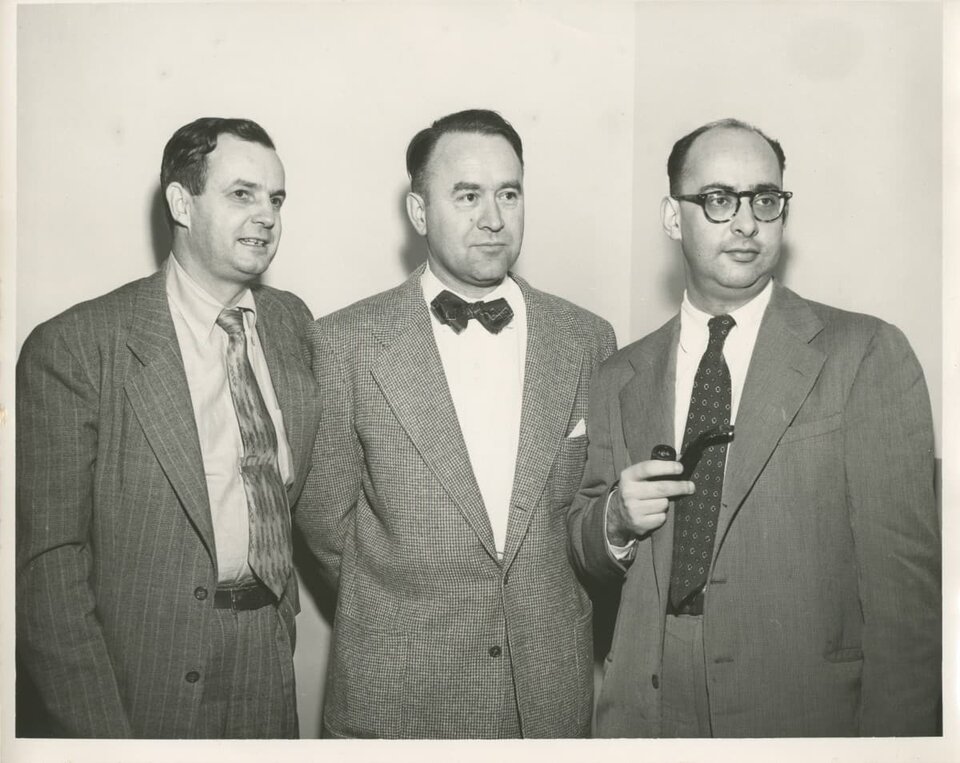Content
Psychology of Performance Optimization in Collegiate Athletes
No. 72 (2025)
Organizers: Aron K. Barbey & Douglas Schultz
Collegiate athletics presents a unique opportunity for personal growth and development, cultivating lifelong physical, mental, and social skills that transcend the playing field. However, the rigorous demands of collegiate sports can also pose challenges to an athlete’s overall health, wellbeing, and performance. Recognizing the pivotal role of psychology for enabling athletic success, this symposium, titled “The Psychology of Performance Optimization in Collegiate Athletes,” investigates the psychological underpinnings of athletic achievement, examining evidence-based interventions that empower student-athletes to thrive both on and off the field.
- Tony Belli (University of Birmingham)
Advances in Concussion Diagnostics - Lt Col Robert Briggs (United States Air Force)
STRONG Lab (Human Performance Lab at Air Force Research Laboratory) Overview: Includes “Movement Matters” Project Highlights and Future Steps in Movement Screening - Carrie Esopenko (Icahn School of Medicine Mount Sinai)
Improving Concussion Outcomes in Female Athletes: The Importance of Addressing Disparities in Clinical Care - Josh Hagen (Ohio State University)
Human Performance Monitoring and Augmentation in Athletics, Military, and First Responders - Grant Iverson (Harvard Medical School)
Promoting Excellence in Sport-Related Concussion Research and Clinical Care for All - Barbara Meyer (University of Wisconsin-Milwaukee)
The High Performance Continuum: An Integrative Solution for Optimizing Health and Performance - Jesse Steinfeldt (Indiana University)
Motivation and Mental Health Among Elite College Athletes and Coaches: The Impact of NIL and the Transfer Portal Era on NCAA Football and Basketball - Doug Wiebe (University of Michigan)
Using Epidemiology to Understand Sport Concussion Incidence and Acute Outcomes and Motivate Studies of Long-Term Health
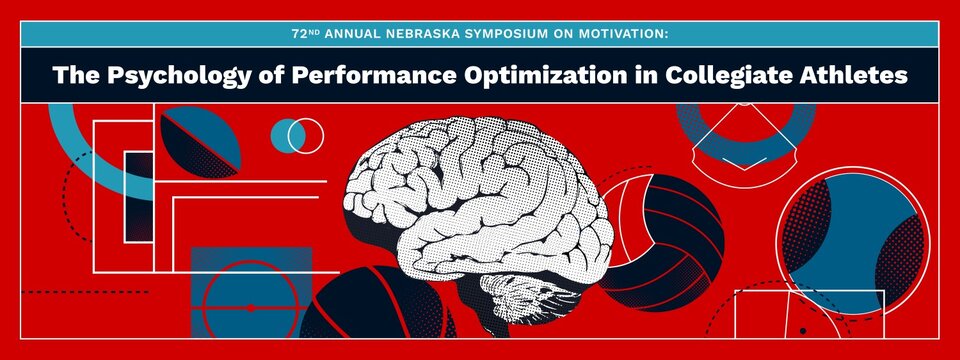
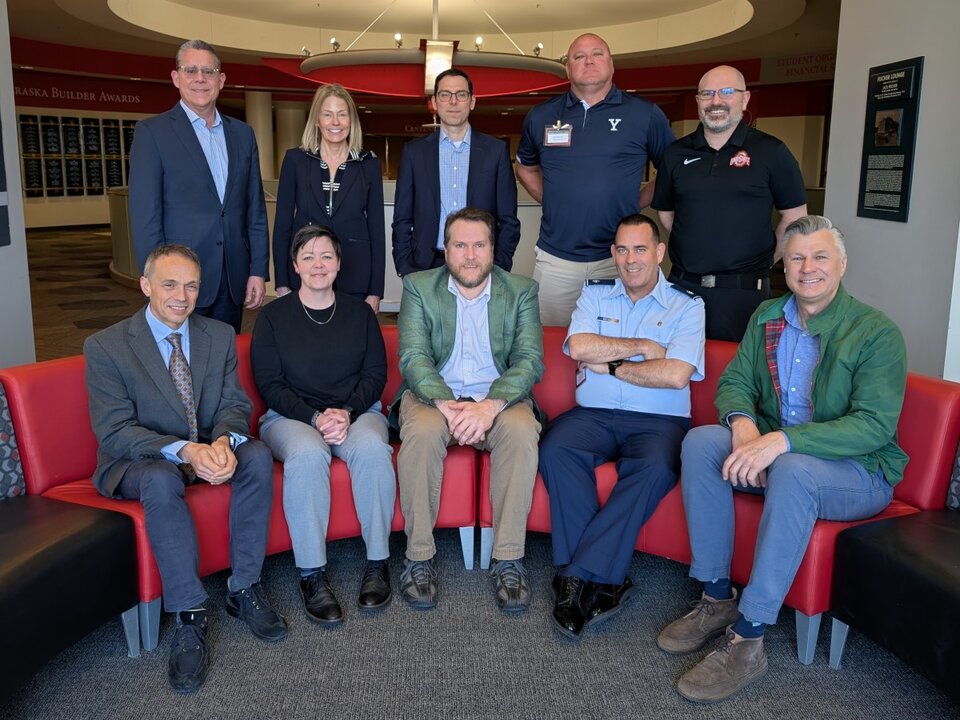
Back row: Grant Iverson, Barbara Meyer, Aron Barbey, Jesse Steinfeldt, Josh Hagen.
Front row: Tony Belli, Carrie Esopenko, Doug Schultz, Lt Col Robert Briggs, Doug Wiebe.
Legal Judgment and the Motivation for Justice
No. 71 (2024)
Organizers: Richard Wiener and Dave Hansen
It has become very clear to many who work in the area of Law and Psychology that we currently possess a great deal of knowledge about the psychology of the legal system, including the way in which the behavior of legislatures, judges, jurors, attorneys, litigants, and defendants shapes the outcome of justice. It has also become very clear that the main obstacles to beneficial modifications to the legal system stem from the lack of motivation to seek justice, motivation to change the legal process, and motivation to make use of evidence-based decision-making.
The purpose of this symposium was to examine the antecedents of the motivation for justice, describe how that motivation activates and manifests in various legal institutions (i.e., elections, legislatures, courts, and executive offices), and trace the failure of that motivation to influence legal decision-making. This included research and commentary about a) where the motivation for justice comes from when people make legal judgments and decisions, b) how the motivation for justice influences legal judgments and decisions, and c) how legal judgments and decisions influence the motivation for justice in positive and negative ways. This topic is paramount at the current time in our history in view of the apparent breakdown of society’s beliefs in our institutions and trust in the democratic process, which has contributed to a system that has increasingly operated from tribalistic impulse rather than from a richer motivation for authentic justice.
- christian h. bijoux (Georgetown University)
Unveiling Injustice: Toward a Community Model in Legal Judgment - Mandeep K. Dhami (Middlesex University)
Sentencing Offenders for Multiple Offences: When Seeking Justice is too Cruel, Costly and Cognitively Demanding - Jack Glaser (University of California, Berkeley)
Police Discretion as a Vulnerability Factor for Disparate Treatment - Jennifer K. Robbennolt (University of Illinois, College of Law)
Accountability, Apologies, and Amends: Motives for Justice - Donna Shestowsky (University of California, Davis, School of Law)
What Motivates People to Use ADR? - Dan Simon (University of Southern California, Gould School of Law)
The Adversarial Bias: Zeal, Motivation, and the Coherence Effect - Tom Tyler (Yale Law School)
Is Ideological Polarization a Threat to Procedural Justice-based Legitimacy: The Case of Elections - Kees van den Bos (Utrecht University)
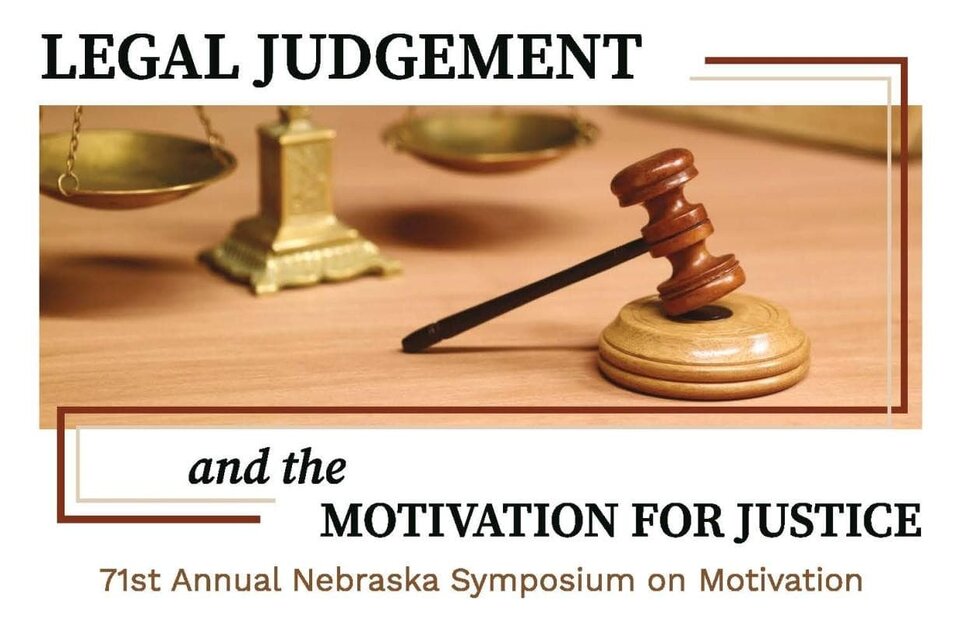
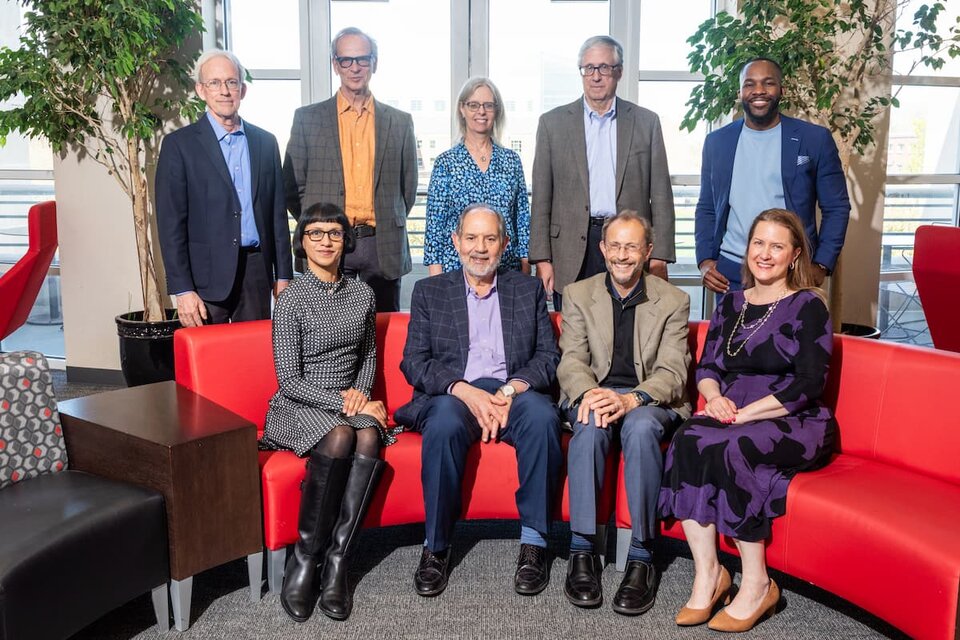
Gender Resilience, Integration, and Transformation
No. 70 (2023)
Organizers: Tierney Lorenz, Debra Hope, and Katy Holland
Several recent papers calling for intersectionality in psychological science have highlighted the need to move away from deficit-based models and embrace more nuanced and methodologically rigorous approaches to measuring resiliency and wellbeing within minoritized groups, including women and gender-diverse folx. This symposium will elevate and highlight research on resiliency, joy, pleasure and wellbeing, going beyond questions of “how can we apply existing theories of resilience to gender diverse populations?” to “what can we learn from women and gender diverse folx about the nature of resilience, joy and wellbeing?”
- Lanice Avery (University of Virginia)
“Black Like Love Too Deep”: Exploring the Implications of Gendered Racism on Black Women’s Psycho-Sexual Well-Being - Meredith Chivers (Queens University)
(not) Written on the body: How (Re)Focusing on Women’s Sexual Pleasure Decenters Essentialist Models of Gendered/Sexed Sexual Response, Sexual Attractions, and Sexual Wellbeing - Danielle Dickens (Spelman College)
Being (Un)Seen: Exploring the Psychosocial Outcomes of Identity Negotiation among Black Women - Breanne Fahs (Arizona State University)
A reconsideration of Sexual Freedom: How Anarchist Principles of ‘Freedom to’ and ‘Freedom from’ Can Reshape Understandings of Women’s Sexual Liberation - Sara McClelland (University of Michigan)
Discussion across the 70th Symposium on Motivation - Jae Puckett (Michigan State University)
Transgender and Gender Diverse People’s Experiences of Resilience: Adapting Conceptual Frameworks and Addressing Measurement Challenges
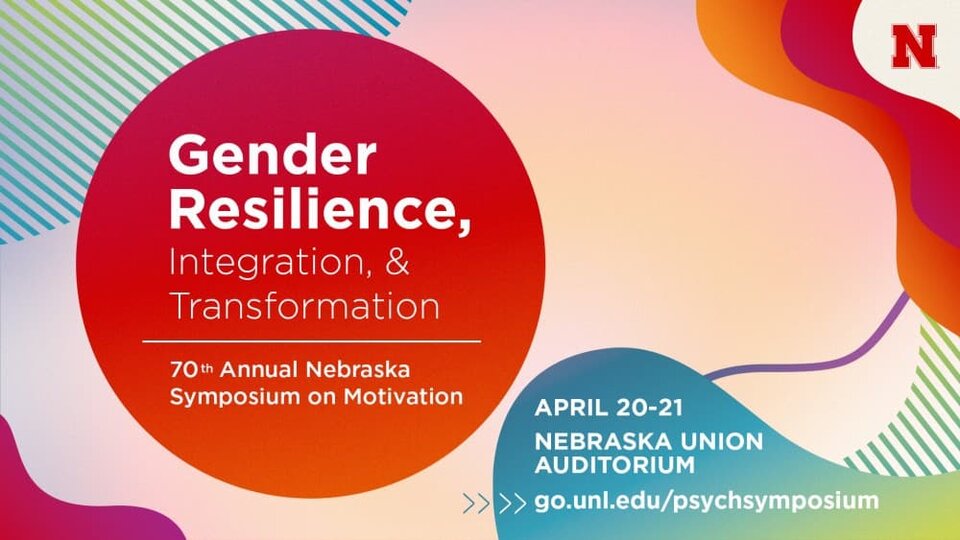

Canine Cognition and the Human Bond
No. 69 (2022)
Organizer: Jeffrey Stevens
Dogs are a valued part of almost 70 million American households. Yet, in terms of behavior and cognition, they have only become a serious subject of scientific study in the last 20 years. Similarly, we have recently witnessed a sharp increase in studies of canine-human interaction, exploring the motivational, emotional, cognitive, physiological, and neural mechanisms of dogs on human psychology and well-being. The primary goal of this symposium is to bring together researchers from psychology, biology, neuroscience, anthropology, and social work to delve deeper into the canine-human bond.
- Anindita Bhadra (Indian Institute of Science Education & Research Kolkata)
A dog's life in the human jungle - John-Tyler Binfet (University of British Columbia)
Dogs on campus: Lessons learned from 10 years overseeing canine-assisted interventions and programming - Brian Hare (Duke University)
Is dog cognition the secret to working dog success? - Jeffrey Katz (Auburn University)
Dog, human, and robot bonding: Past, present, and future - Patricia Pendry (Washington State University)
Conceptual and pathway models guiding research on identifying active treatment components of AAIs on stress-related outcomes - Friederike Range (University of Veterinary Medicine, Vienna)
Wolves-humans-dogs: How did domestication change the human-canine relationship? - Kerri Rodriguez (Colorado State University)
PTSD service dogs for military veterans: Current knowledge and future directions
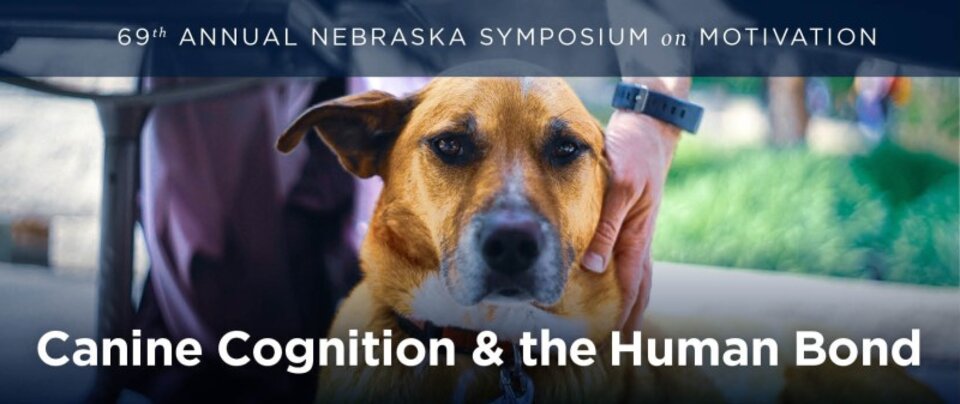
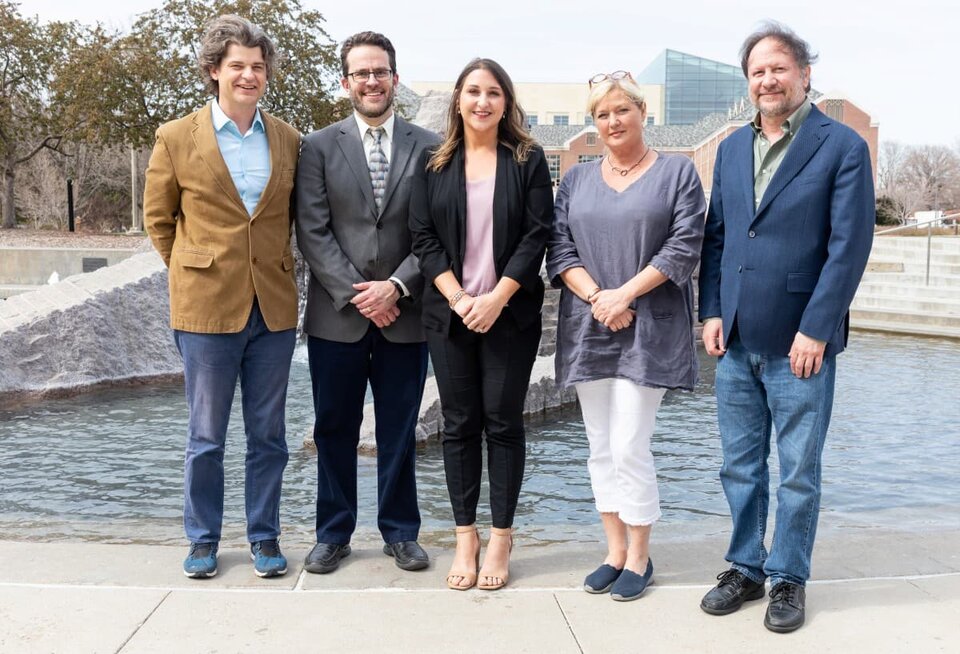
Alcohol and Sexual Violence
No. 68 (2021)
Organizers: David DiLillo, Sarah Gervais, and Dennis McChargue
Alcohol use has long been recognized as a major contributor to sexual assault, with an estimated 50% of sexual assaults in the U.S. involving drinking by the victim, perpetrator, or both (Abbey, 2002). Beyond the usual harmful effects, alcohol-involved assaults are associated with unique sequelae for female victims, including increased self-blame, stigma, and greater alcohol use to cope (Brown, Testa, & Messman-Moore, 2009; Kaysen, Neighbors, Martell, Fossos, & Larimer, 2006). Moreover, heavier drinking on the part of the perpetrator is associated with more serious incidents of assault (e.g., involving physical force) that result in more severe outcomes for victims (Parkhill, Abbey, & Jacques-Tiura, 2009). The purpose of this Symposium on Motivation is to bring together a group of experts in the areas of alcohol and sexual aggression to articulate the causes, consequences, and mechanisms of alcohol-involved sexual assault. Speakers will talk about classic and contemporary research and theories on these issues using cutting-edge approaches.
- Antonia Abbey (Wayne State University)
Alcohol and Men's Sexual Assault Perpetration Against Women: How is our Understanding Hampered by Limitations in Existing Measures? - Kelly Cue Davis (Arizona State University)
Understanding Alcohol-Involved Sexual Aggression Through the Science of Behavior Change - Robert C. Freeman (National Institute on Alcohol Abuse and Alcoholism)
NIAAA Funding Update and Q&A - Dean Kilpatrick (Medical University of South Carolina)
Understanding and Addressing the Problem of Alcohol and Sexual Violence: We've Made Progress But Still Have Miles to Go - Lindsay Orchowski (Brown University)
Alcohol Use and Sexual Assault in the U.S. Military: Considerations for Prevention - Dominic Parrott (Georgia State University)
Alcohol-Related Sexual Violence Perpetration Toward Sexual and Gender Minority Populations: A Critical Review and Call to Action - Maria Testa (University of Buffalo)
Person, Place, and Drink: 30 Years of Research to Understand and Prevent Alcohol-Related Sexual Assault
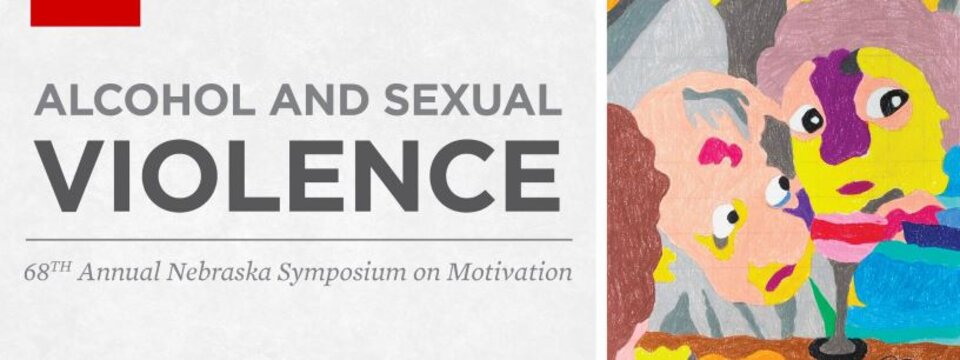
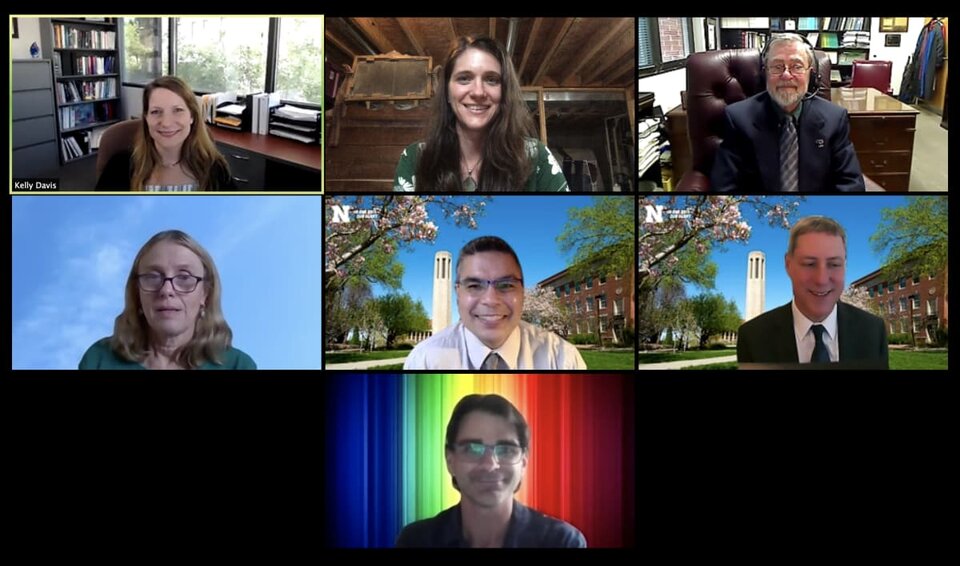
Nature and Psychology
No. 67 (2019)
Organizers: Anne Schutte, Julia Torquati, Jeffrey R. Stevens
Over the years, Americans have decreased the amount of time spent in natural environments. Children, in particular, spend less time outdoors than in the past. Yet, interacting with nature has important positive effects on human behavior, health, and well-being. Notably, interacting with nature decreases stress, increases happiness, improves mood, and restores attention. This area of research spans many disciplines including psychology, education, health sciences, natural resources, environmental studies, landscape design, and architecture, just to name a few. These disciplines work at different levels of analyses with different types of research questions. The primary goal of this symposium is to delve deeper into the question of the mechanism(s) underlying these positive effects through bringing together researchers from various disciplines.
- March Berman (University of Chicago)
Environmental Neuroscience: Uncovering the Extensive Interactions between Neurobiology, Psychology, Behavior and the Environment - Louise Chawla (University of Colorado-Boulder)
Knowing Nature in Childhood: Placing Cognition in Social and Environmental Contexts - Terry Hartig (Uppsala University)
Restorative Environments Theory: Beyond the Conventional Narrative - Harry Heft (Denison University)
Discussant - William Sullivan (University of Illinois Urbana-Champaign)
Landscapes and Your Brain - Agnes van den Berg (University of Groningen)
Aspects of Natural Environments that Trigger Positive Responses to Nature - Nancy Wells (Cornell University)
The Natural Environment: Challenge, Inequity and Resilience
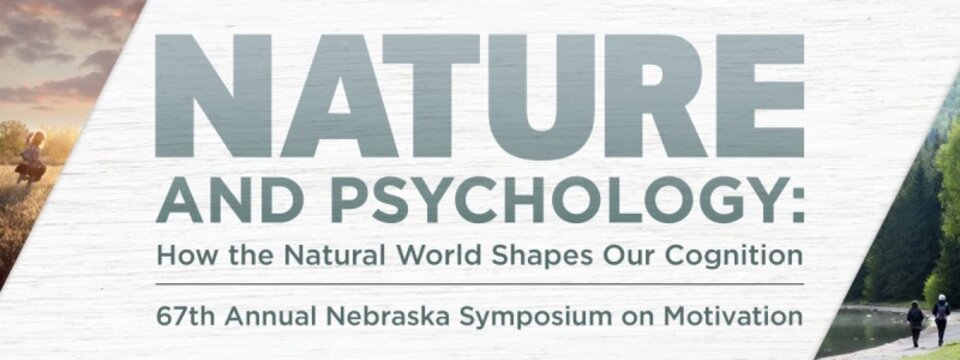
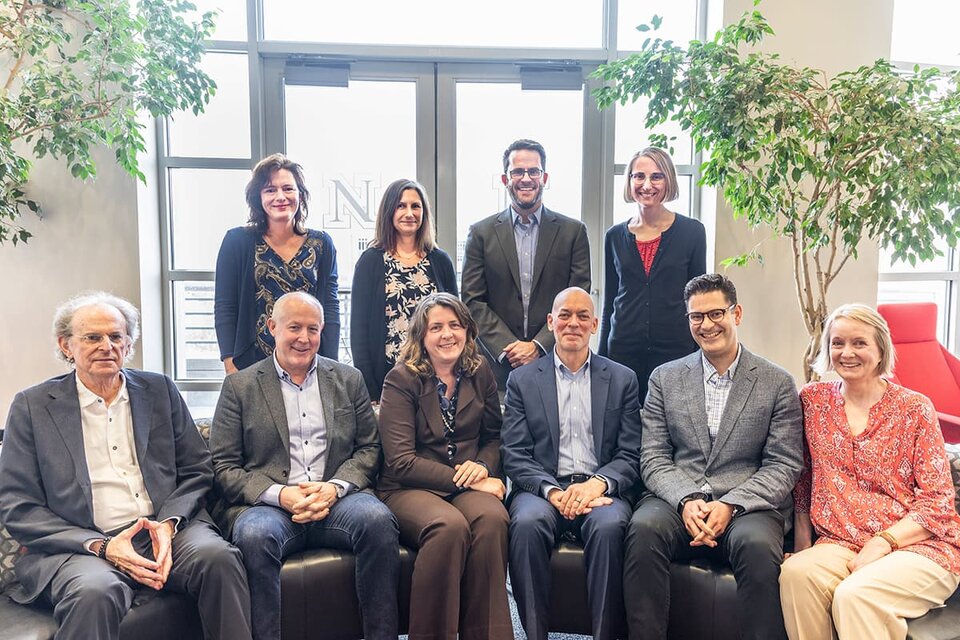
Emotion in the Mind and Body
No. 66 (2018)
Organizers: Maital Neta, and Ingrid Haas
- Deanna Barch (Washington University)
Mechanisms of Motivational Impairments in Psychosis and Depression - Elaine Fox (University of Oxford)
The Contribution of Cognitive Biases and Genes to Psychological Wellbeing - James Gross (Stanford University)
Motivation: A Valuation Systems Perspective - Brian Knutsen (Stanford University)
Towards a Deep Science of Affect and Motivation - Kevin Ochsner (Columbia University)
Evolving Perspectives on Emotion, Emotion Regulation and Their Social Context - Leah Somerville (Harvard University)
How Emotion and Motivation Influence Goal Directed Behavior Differently from Childhood to Adulthood - Tor Wager (University of Colorado)
Reproducible, Generalizable Brain Models of Affective Processes
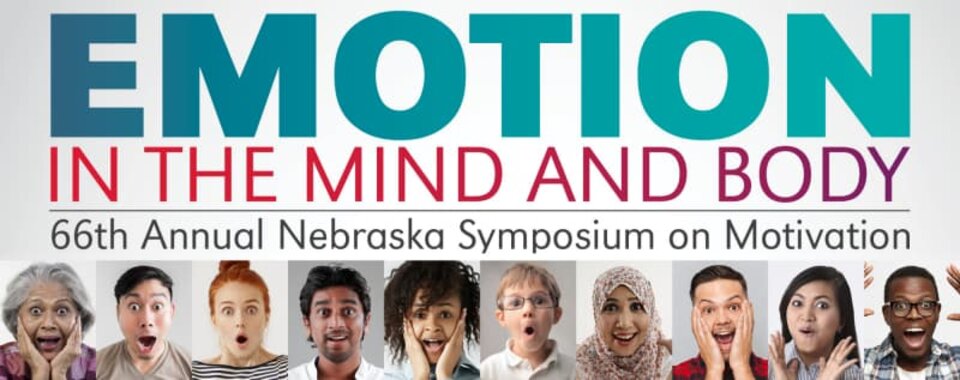
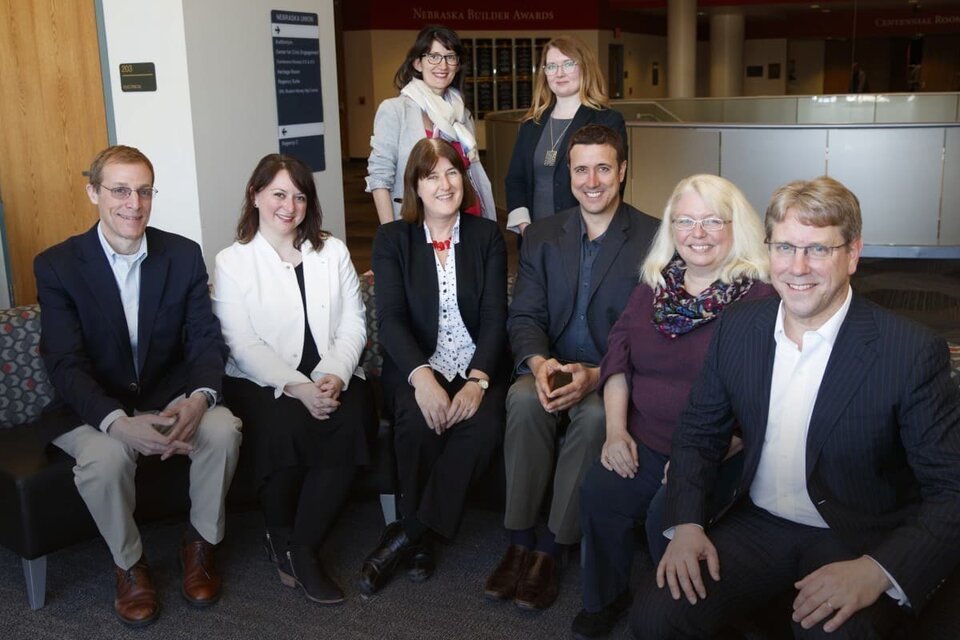
Change and Maintaining Change
No. 65 (2017)
Organizers: Rick Bevins and Debra Hope
- Dolores Albarracín (University of Illinois)
Actionable Communications and Interventions to Change Behavior: Cognitive and Motivational Processes and Implications for Practice - Chloe Bird (RAND)
Insights on Addressing Social Psychological and Social Structural Impediments to Behavioral Change: The Case of Cisgender Women Newly Diagnosed with HIV - Stephen Higgins (University of Vermont)
Tobacco Control and Regulatory Science Research on Motivating Behavior Change in Vulnerable Populations - George Koob (NIAAA)
Motivating Change in Addiction Via Modulation of the Dark Side of Addiction - Greg Madden (Utah State University)
It’s All Lunch & Games: Increasing Healthy Eating in Elementary Schools - Connie Roser-Renouf (George Mason University)
Strategic Communication, Public Opinion, and Climate Change: A Program of Translational Research to Build Public Engagement with a Contested Threat
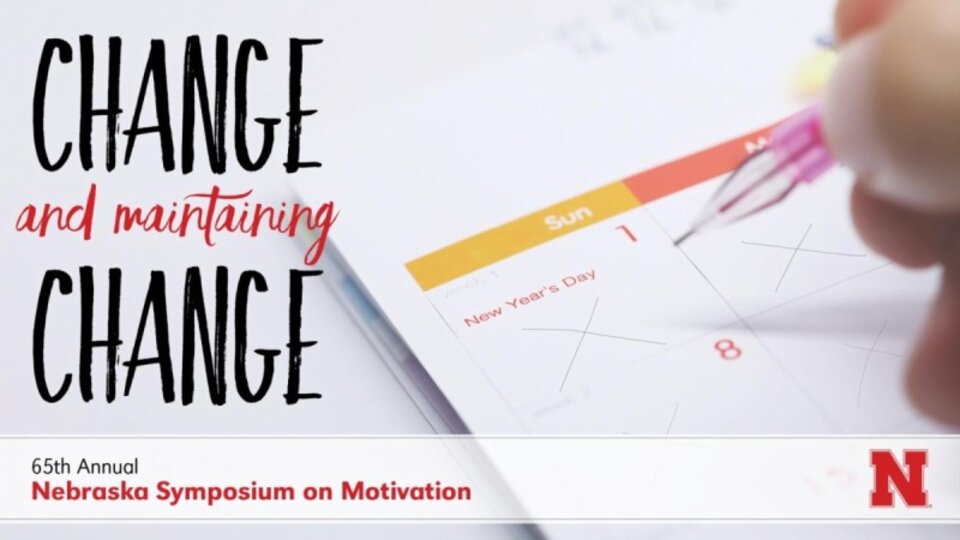
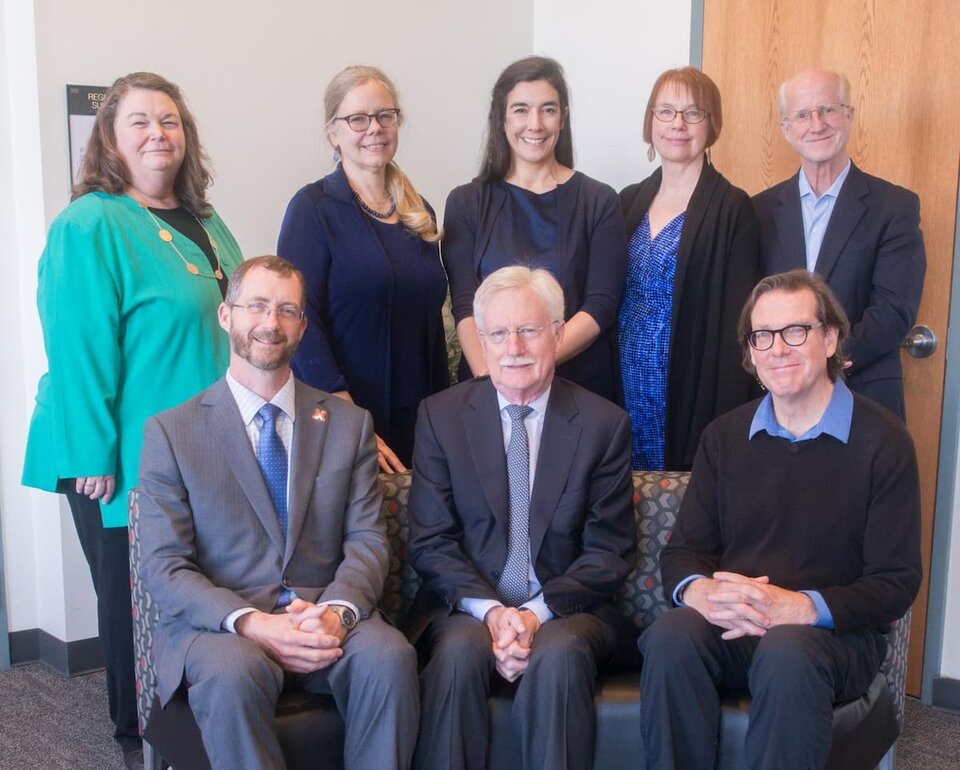
Impulsivity: How Time and Risk Influence Decision Making
No. 64 (2016)
Organizer: Jeffrey R. Stevens, Ph.D.
The 64th Annual Nebraska Symposium on Motivation focused on impulsivity, a multi-faceted concept that captures the inability to wait, a tendency to act without forethought, insensitivity to consequences, and/or an inability to inhibit inappropriate behaviors. Across psychology, impulsivity is related to the concepts of patience, self-control, risk taking, gambling, inhibitory control, delayed gratification, and intertemporal choice. Due to the multi-faceted nature of impulsivity, it plays a critical role in a number of key behavioral problems, including pathological gambling, overeating, addiction, adolescent risk-taking, spread of sexually transmitted diseases, criminal behavior, financial decision making, and environmental attitudes. The symposium featured speakers at the forefront of research investigating motivational influences of the psychology, neuroscience, development, and evolution of impulsivity:
- Warren Bickel (Virginia Tech Carilion Research Institute)
Trans-Diagnostic Approach to Preventing and Treating Behavioral Dysfunction - Suzanne Mitchell (Oregon Health & Science University)
Impulsivity and Effort-Related Decision-Making in Psychopathology - Philip Peake (Smith College)
Delay of Gratification: Experimental, Longitudinal, and Interventional Explorations of How Preschoolers Wait and What It Might Mean Across the Lifecourse - Michael Platt (University of Pennsylvania)
Neural Mechanisms Mediating Self-Regulation - Valerie Reyna (Cornell University)
A Fuzzy Trace Theory of Risk and Time Preferences in Decision Making: Integrating Cognition and Motivation - Trevor Robbins (University of Cambridge)
Fractionating Impulsivity: Neural Substrates and Neuropsychiatric Implications - Bram Tucker (University of Georgia)
Risk and Time Preference and Decision-Making in the Field: Limits, Possibilities, and Future Directions as Glimpsed from a Rural Southwestern Madagascar Case Study
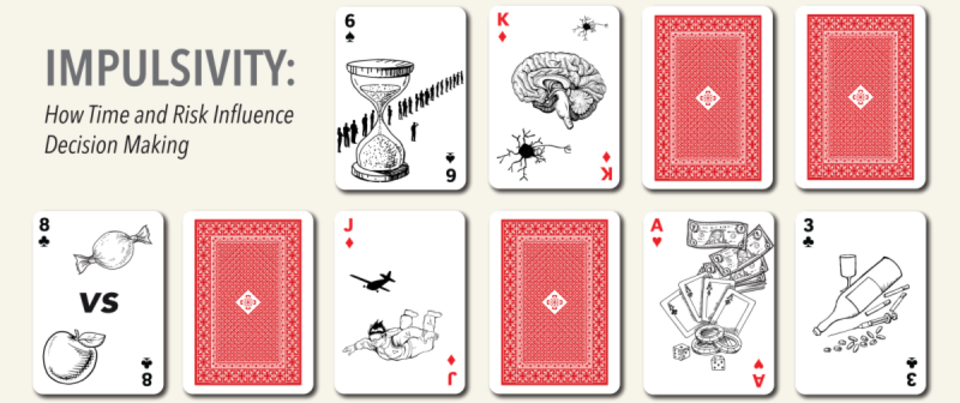

Neuropsychopathology of Schizophrenia: Molecules, Brain systems, Motivation, Cognition, and Treatment
No. 63 (2015)
Organizers: Ming Li and William Spaulding
The 63rd Annual Nebraska Symposium on Motivation focused on schizophrenia, which remains a major public health problem and is an intensively researched area in genetics, neuroscience, psychology and neuropharmacology. The breathtaking developments of recent years in our understanding of how the brain works, at the molecular, cellular and systemic levels, have accompanied comparable advances in our understanding of psychological processes in this severe and disabling form of mental illness. Six internationally recognized leaders in neuroscience, psychopathology, and neuropharmacology addressed schizophrenia in the context of their broader theoretical work. They covered a variety of topics related to schizophrenia, including cognitive and motivational dysfunction and associated brain mechanisms, symptom classification, individual differences, genetic etiology, and brain biomarkers of psychosis, and more. The speakers included:
- William Carpenter (University of Maryland)
Avolition in Schizophrenia: A Failure to Translate Reward Information into Motivated Behavior - Bruce Cuthbert (NIMH)
The NIMH Research Domain Criteria Project: New Approaches to Classifying Psychotic Spectrum Disorders - Raquel Gur (University of Pennsylvania)
Neurodevelopmental Genomic Strategies in the Study of the Psychosis Spectrum - Ruben Gur (University of Pennsylvania)
Multimodal Brain and Behavior Indices of Psychosis Risk - David Lewis (University of Pittsburgh)
A Neural Circuitry Basis for Impaired Cortical Network Oscillations and Cognitive Dysfunction in Schizophrenia - Steven Silverstein (Rutgers Biomedical and Health Sciences)
What Do Visual Processing Impairments Tell Us About the Eye, The Brain, Symptom Formation, and Illness Course in Schizophrenia?
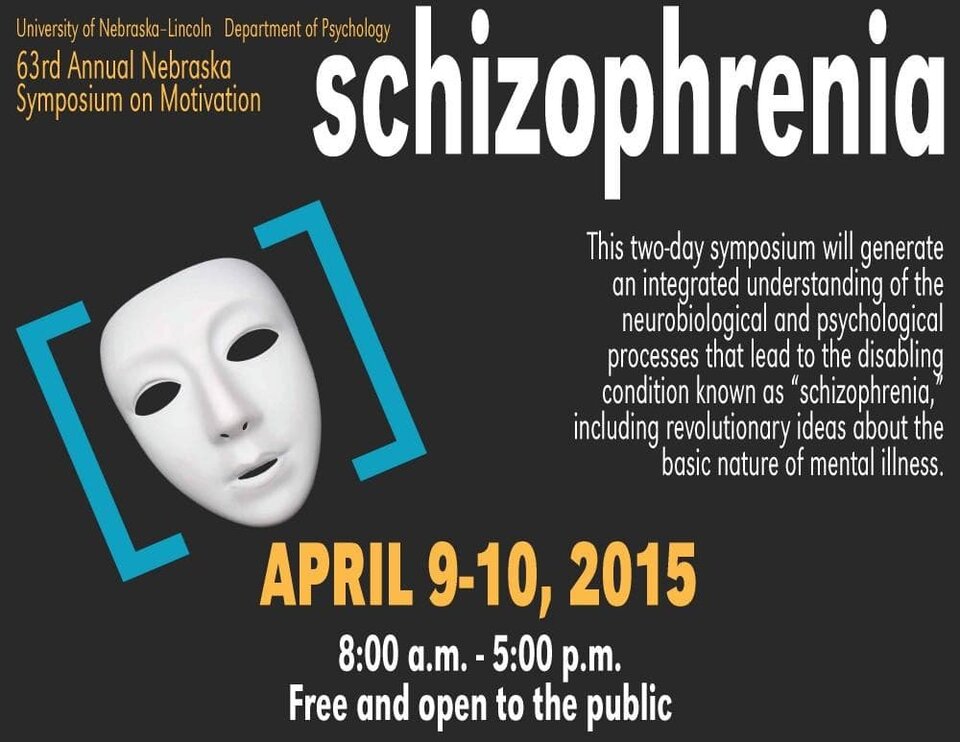
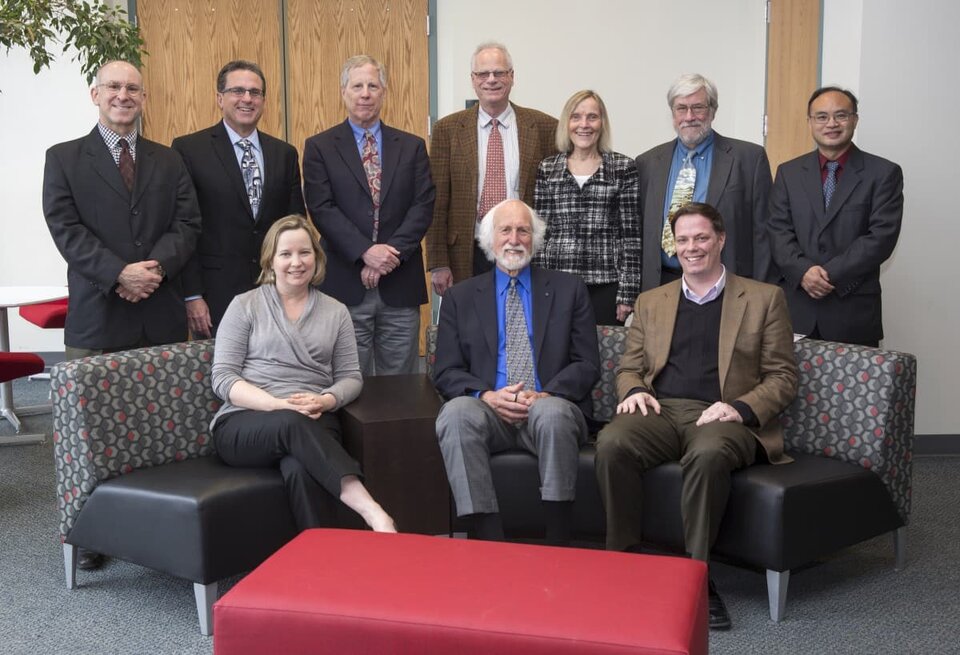
Cooperation and Compliance with Authority: The Role of Institutional Trust
No. 62 (2014)
Organizers: Brian H. Bornstein and Alan J. Tomkins
The 62nd Annual Nebraska Symposium on Motivation addressed critical issues in institutional trust. The speakers included:
- James Gibson (Department of Political Science, Washington University in St. Louis)
Legitimacy Is for Losers: The Role of Institutional Legitimacy and the Symbols of Judicial Authority in Inducing Acquiescence to Disagreeable Court Rulings - Karen Hegtvedt (Department of Sociology, Emory University)
Creating Legitimacy: The Interrelated Roles of Justice and Trust - Jonathan Jackson (Mannheim Centre for the Study of Criminology and Criminal Justice, London School of Economics and Political Science)
Motivating Cooperation: A Comparative Cross-National Analysis of Procedural Justice and Legitimacy - Peter Ping Li (Department of International Economics and Management, Copenhagen Business School)
Trust beyond Trustworthiness: When Trust Matters the Most - Robert MacCoun (School of Public Policy and Boalt School of Law, University of California – Berkeley)
Fostering Public Trust in Social Science Expertise - David Rottman (National Center for State Courts)
Who Trusts Trial Courts, to What Degree, and Why? - David Schoorman (Krannert School of Management, Purdue University)
Would Trust by Any Other Name Smell as Sweet? Reflections on the Meanings and Uses of Trust across Disciplines and Context - Beth Theiss-Morse (Department of Political Science, University of Nebraska–Lincoln)
The Impact of Polarization on Political Trust
The symposium was followed by the National Science Foundation Workshop on Institutional Trust and Confidence.
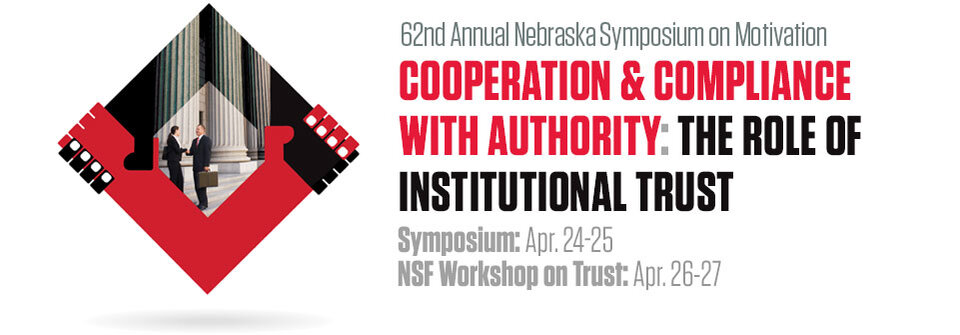
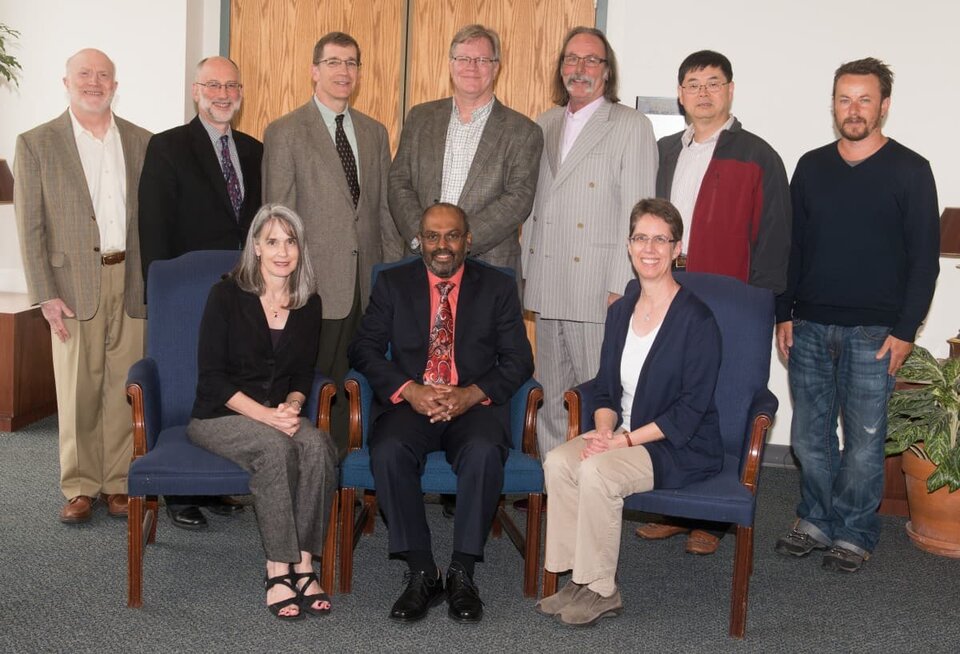
Genes and the Motivation to Use Substances
No. 61 (2013)
Organizer: Scott F. Stoltenberg
People are motivated to use substances and, in general, most people who use them do not develop a substance use disorder (SUD). Why is it that some individuals develop problems with substance use while others do not? There is strong evidence that genetic factors influence a person’s risk for developing an SUD. Individual differences in the motivation to use substances are at least in part associated with genetic differences between people. Research into the genetics underlying the development of SUDs is a critical contributor to our understanding of the biopsychosocial factors that influence substance use. In the past two decades, genetic research on SUDs has grown tremendously. An important goal of this genetic work is to take this new information from the laboratory to the clinic for use in personalized medicine. The 61st Annual Nebraska Symposium on Motivation addressed critical issues in relations among genes and the motivation to use substances. The speakers included:
- Arpana Agrawal, Ph.D. (Washington University, St. Louis)
Has the Genetics of Cannabis Involvement Gone to Pot? - John C. Crabbe, Ph.D. (Oregon Health & Science University)
Rodent Models of Genetic Contributions to Alcohol Abuse - David Goldman, M.D. (National Institute on Alcohol Abuse and Alcoholism)
Discovery of Genes Influencing Addiction by Deep Sequencing Humans and Model Organisms - Matt McGue, Ph.D. (University of Minnesota)
The Adolescent Origins of Substance Use Disorders: A Behavioral Genetic Perspective - Robert Philibert, M.D., Ph.D. (University of Iowa)
The DNA Methylation Signature of Smoking: An Emerging Archetype for the Identification of Biomarkers for Behavioral Illness - Robert A. Zucker, Ph.D. (University of Michigan)
Genes, Brain, Behavior and Context: The Developmental Matrix of Addictive Behavior
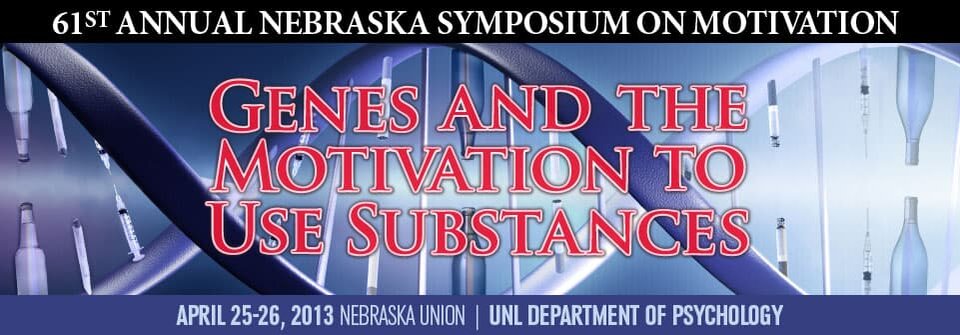
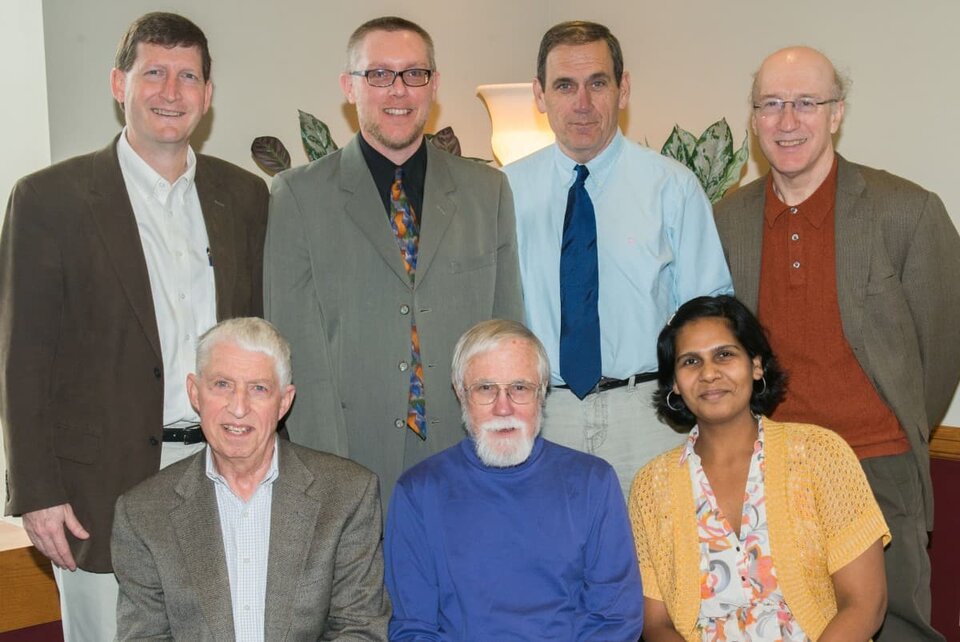
Objectification and (De)Humanization
No. 60 (2012)
Organizer: Sarah J. Gervais
People often see nonhuman agents as human-like. Through the processes of anthropomorphism and humanization, people attribute human characteristics, including personalities, free will, and agency to pets, cars, gods, nature, and the like. Similarly, people often see human agents as less than human or object-like. For example, women, medical patients, racial minorities, and people with disabilities, are often seen as animal-like or less than human through dehumanization and objectification. These processes may be a considered a continuum with anthropomorphism and humanization on one end and dehumanization and objectification on the other end. Although researchers have identified some of the antecedents and consequences of these processes, a systematic investigation of the motivations that underlie this continuum is lacking. Considerations of this continuum may have considerable implications for such areas as everyday human functioning, interactions with people, animals, and objects, violence, discrimination, relationship development, mental health, or psychopathology. This symposium and edited volume will integrate multiple theoretical and empirical approaches on this issue. The speakers included:
- Rachel Calogero, Ph.D. (Virginia Wesleyan College)
Objects Don't Object: An Integrative System - Nicholas Epley, Ph.D. (University of Chicago)
Humanization: Motivated Perception of Pets as People and People as Animals - Susan Fiske, Ph.D. (Princeton University)
Varieties of (De)Humanizing Experience - Jamie Goldenberg, Ph.D. (University of South Florida)
The Objectification of Women as Terror Management - Nicholas Haslam, Ph.D. (University of Melbourne)
Bodies and Beasts, Minds and Meat, Objects and Otherness - Bonnie Moradi, Ph.D. (University of Florida)
Toward a Pantheoretical Framework for Understanding the Mental Health Implications of Dehumanization Experiences: An Integration of Objectification and Minority Stress Theories

Memory and Motivation: Visual Search
No. 59 (2011)
Organizers: Michael D. Dodd & John H. Flowers
| Speaker | Affiliation | Topic |
| Raymond Klein | Dalhousie University | Searching in Space and Time |
| Jan Theeuwes | Vrije University | Automatic Control of Visual Selection |
| Andrew Hollingworth | University of Iowa | Interactions Between Visual Memory and Saccade Rarget Selection During Search |
| Nick Turk-Browne | Princeton University | Statistical Learning and Its Consequences |
| Steven Yantis | Johns Hopkins University | Reward and Attentional Control in Visual Search |
| Stephen Mitroff | Duke University | Examining Influences on Applied Visual Search Performance |
| Jeremy Wolfe | Harvard Medical School; Brigham and Women's Hospital | What's My Motivation in this Scene? Visual Search When It Really Counts |
True and False Recovered Memories: Toward a Reconciliation of the Debate
No. 58 (2010)
Organizer: Robert F. Belli
| Speaker | Affiliation | Topic |
| Marcia K. Johnson | Yale University | The Cognitive Neuroscience of True and False Memories |
| Carol L. Raye | Yale University | |
| Karen J. Mitchell | ||
| Elizabeth Ankudowich | Yale University | |
| Michael C. Anderson | University of Cambridge | Towards a Cognitive and Neurobiological Model of Motivated Forgetting |
| Ean Huddleston | University of Cambridge | |
| Richard J. McNally | Harvard University | Searching for Repressed Memory |
| Chris R. Brewin | University College London | A Theoretical Framework for Understanding Recovered Memory Experiences |
| Elke Geraerts | Erasmus University Rotterdam | Cognitive Underpinnings of Recovered Memories of Childhood Abuse |
| Anne P. DePrince | University of Denver | Motivated Forgetting and Misremembering: Perspectives from Betrayal Trauma Theory |
| Laura S. Brown | Seattle, WA; private practice | |
| Ross E. Cheit | Brown University | |
| Jennifer J. Freyd | University of Oregon | |
| Steven N. Gold | Nova Southeastern University | |
| Kathy Pezdek | Claremont Graduate University | |
| Kathryn Quina | University of Rhode Island |
Nebraska Symposium on Motivation
No. 2 (1954)
Organizer: Marshall R. Jones
| Speaker | Affiliation | Topic |
| I. E. Farber | State University of Iowa | Anxiety as a Drive State |
| John W. Atkinson | University of Michigan | Exploration Using Imaginative Thought to Assess the Strength of Human Motives |
| Benbow F. Ritchie | University of California | A Logical and Experimental Analysis of the Laws of Motivation |
| Leon Festinger | University of Minnesota | Motivation Leading to Social Behavior |
| George S. Klein | New York University | Need and Regulation |
| Henry W. Nissen | Yerkes Laboratories of Primate Biology | The Nature of the Drive as Innate Determinant of Behavioral Organization |
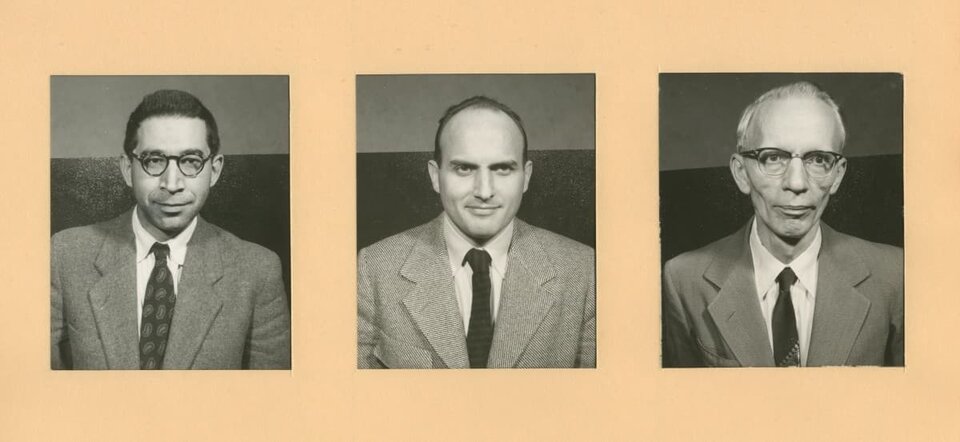
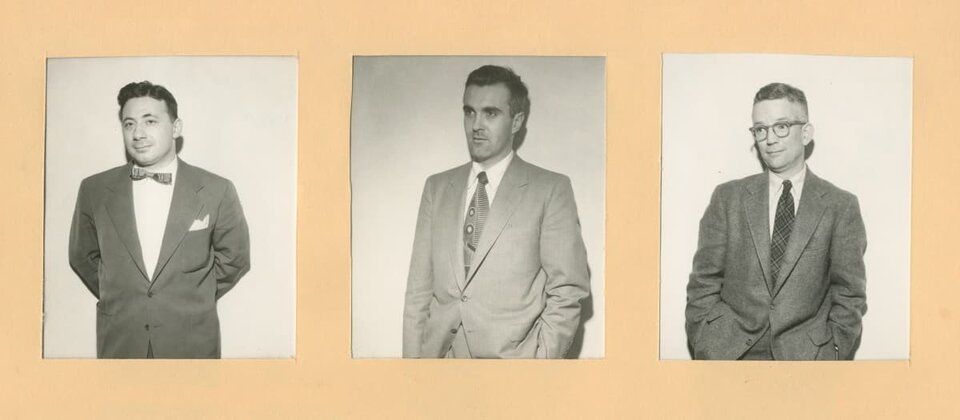
Current Theory and Research in Motivation
No. 1 (1953)
| Authors | Affiliation | Topic |
| Judson S. Brown | State University of Iowa | Problems Presented by the Concept of Acquired Drives |
| Harry F. Harlow | University of Wisconsin | Motivation as a Factor in New Responses |
| Leo J. Postman | University of California, Berkeley | The Experimental Analysis of Motivational Factors in Perception |
| Vincent Nowlis | Rochester University | The Development and Modification of Motivational Systems in Personality
|
| M. Newcomb | University of Michigan | Motivation in Social Behavior |
| O. Hobart Mowrer | Research University of Illinois | Motivation and Neurosis |
